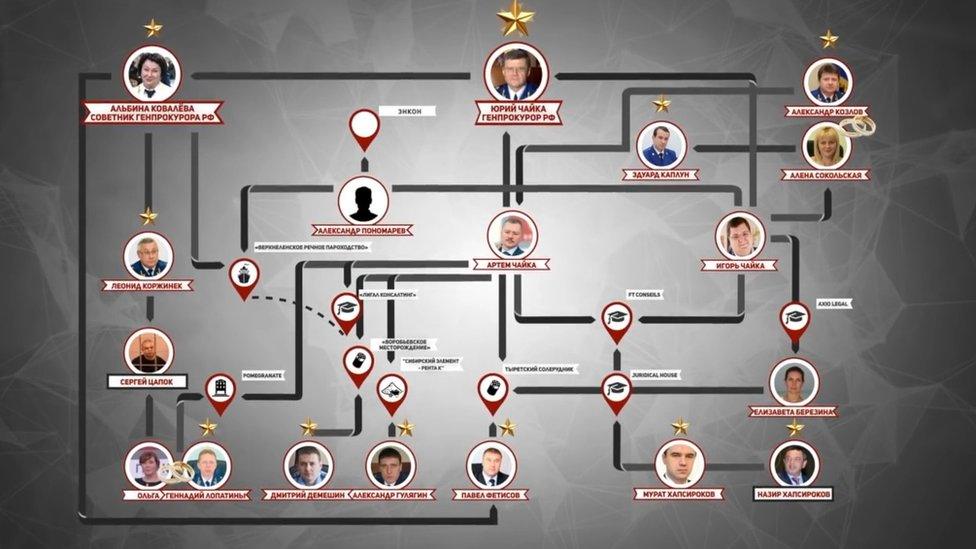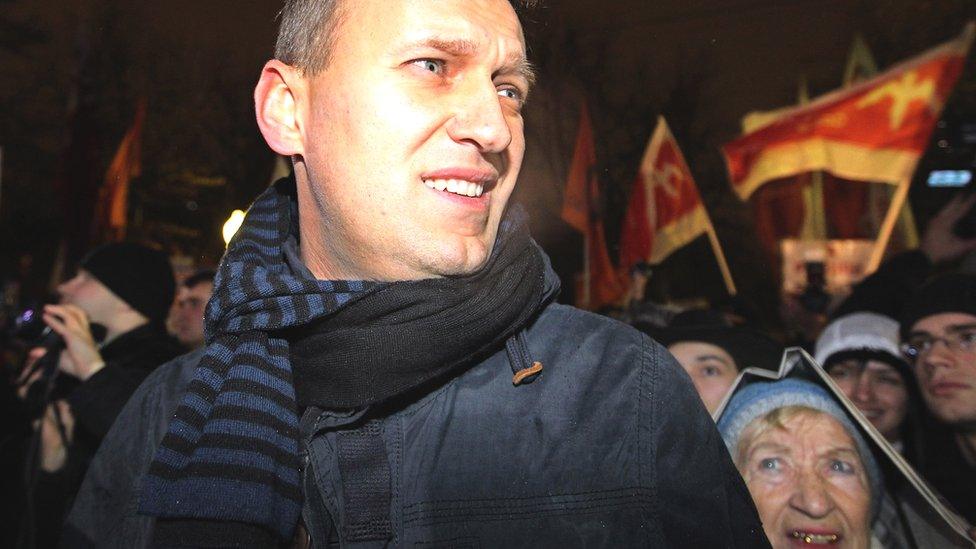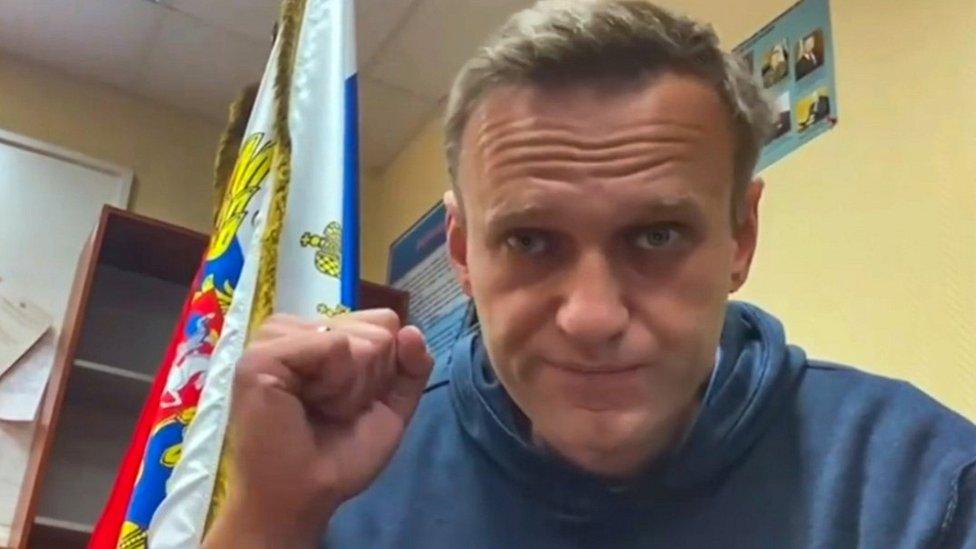Putin opponent Navalny's anti-corruption 'video bomb'
- Published
Opposition campaigner Alexei Navalny has a history of using YouTube to criticise the Kremlin
A new video by anti-Putin campaigner Alexei Navalny's Anti-Corruption Foundation has been watched more than three million times on YouTube in little more than a week, showing that Russia's beleaguered opposition can still make an impact.
Dubbed by one commentator, external a "video bomb" and posted on 1 December, the film, external details allegations of corruption among the family and associates of Russian Prosecutor-General Yuri Chaika.
The film begins with the lavish opening of a luxury hotel in Greece attended by members of the Russian elite, including Culture Minister Vladimir Medinsky.
Also there is Mr Chaika's son, Artyom, who is said to be one of the hotel's owners.
The hotel is just one part of a business empire which Artyom and his brother Igor have amassed thanks, in part at least, to their father's connections, the foundation alleges.
Highly polished
The film, called simply "Chaika", culminates in a huge maze-like graphic showing the interconnections between Artyom and Igor's businesses and various prosecutors and their relations and associates.
Yuri Chaika has denounced the film as "baseless" and "mendacious", while the Kremlin has dismissed it because the allegations do not concern the prosecutor-general himself.

Navalny's depiction of the Chaikas' business connections
But an article in business daily Vedomosti, external said the Anti-Corruption Foundation probe was "well-documented" and suggested that "practically an entire state institution was tied up with criminality".
The 43-minute film is not a typical viral video, but it is a highly polished production.
Its allegations have been widely covered by Russian news websites and sections of the press. But it has not been touched by state TV, although the cameras did linger on Yuri Chaika when President Vladimir Putin was talking about corruption during his annual state-of-the-nation address on 3 December.
When asked about the case in a live TV interview on Wednesday, Prime Minister Dmitry Medvedev said it was "part of a political struggle".
The lack of TV coverage is not surprising. As a rule, the main channels only mention Mr Navalny when referring to his controversial convictions for fraud and embezzlement, which have resulted in suspended prison sentences and have effectively sidelined him from electoral politics.
"Thorn in Putin's side"
Television remains by far the most popular source of news for most Russians and control of it is one of the mainstays of Mr Putin's rule.
But the opposition has used YouTube to challenge its power in the past, most notably ahead of the disputed 2011 parliamentary election, which was followed by mass protests.
Since then, the Kremlin has passed numerous laws increasing its power to ban online material and even potentially block Twitter, Facebook and YouTube.

Alexei Navalny at an opposition rally in December 2011
But, for the moment, Mr Navalny and his supporters still have the means to get their message across to a large audience.
In March, Time, external magazine named Mr Navalny as one of the 30 most influential people on the internet, alongside the likes of President Barack Obama, Justin Bieber and Kim Kardashian.
In its profile of him, it said that as long as he has an internet connection he will remain a "major thorn in Putin's side".
The success of "Chaika" appears to bear this out.
BBC Monitoring reports and analyses news from TV, radio, web and print media around the world. You can follow BBC Monitoring on Twitter, external and Facebook, external.
- Published16 February 2024
